MercoPress. South Atlantic News Agency
Politics
-
Tuesday, August 24th 2010 - 05:01 UTC
China ready to celebrate 30 years of economic success, admits “social debt”
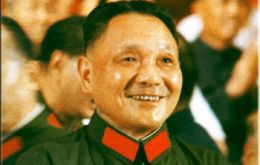
Chinese Premier Wen Jiabao called for implementation of political reform measures during a tour in Shenzhen, the nation's first special economic zone (SEZ) which thirty years ago opened the way for the economic reforms that have helped China become a world power.
-
Tuesday, August 24th 2010 - 03:32 UTC
Chilean Patagonia controversial dam project faces serious PR challenge
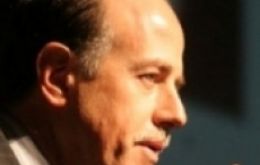
Daniel Fernandez, the new top executive for the controversial 3.2 billion US dollars HidroAysen dam project proposed for Chilean Patagonia, confirmed Sunday that the effort to convince Chileans about the project’s importance has not gone well and that the company is consulting five PR firms to help improve their marketing effort.
-
Tuesday, August 24th 2010 - 03:25 UTC
Big business convinced Ms Rousseff is Brazil’s next president
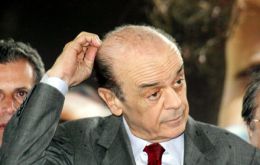
Campaign funds in support of the Brazilian ruling coalition presidential candidate Dilma Rousseff more than double those of her main adversary, according to a report published Monday by Folha de Sao Paulo.
-
Monday, August 23rd 2010 - 21:24 UTC
Falklands, ‘a really valuable training’ theatre for the £ 75 million Typhoon

IT’S almost a year since the Typhoon aircraft took up the role of air defence of the Falkland Islands, and their presence is a source of great pride with Falklands’ residents. The aircraft, costing in the region of £75 million each, patrol the skies and undertake valuable training on a daily basis.
-
Monday, August 23rd 2010 - 04:47 UTC
Kirchner couple actions plan to control Clarin and La Nacion newsprint mill

Argentina’s two main newspapers, Clarin and La Nacion claim the government of President Cristina Kirchner has a plan to eliminate their stakes at the country’s largest newsprint mill.
-
Monday, August 23rd 2010 - 04:23 UTC
Uruguay completes twelve OEDC tax information exchange agreements
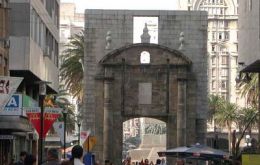
Uruguay reached this month a tax information exchange agreement with India thus totalling the twelve demanded by the Organization for Economic and Development Cooperation to have the country de-listed from the group that still have to abide and implement internationally agreed tax standards.
-
Monday, August 23rd 2010 - 04:02 UTC
Brazilian comedians protest ban on ridiculing political candidates
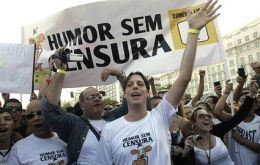
A group of Brazilian stand-up comedians and television comedy actors held a protest against the ruling that bars any ribbing of political candidates over the airwaves in the run-up to the October 3 elections.
-
Sunday, August 22nd 2010 - 04:28 UTC
Shell defies in court Argentine government ban on fuel increases

Royal Dutch Shell which refines about 15% of Argentina’s fuel is waging a court battle against a government ban that prevents fuel producers from increasing prices. Shell’s federal court complaint was filed last week following a government order on August 18 mandating oil companies to lower fuel prices to a pre-August 1 level.
-
Sunday, August 22nd 2010 - 03:05 UTC
The Economist on Argentina's economy: happy-go-lucky Cristina
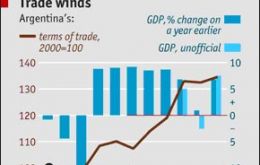
Earlier this year, Cristina Fernández de Kirchner, Argentina’s president, proffered some advice to European governments facing recession and market panic. Its essence was “stuff the IMF and carry on spending.” It is what she and her predecessor and husband, Néstor Kirchner, have practiced since 2003. Argentina is one of only a handful of countries that refuse all dealings with the IMF. Almost a decade after it defaulted on $90 billion of debt when its economy collapsed, it still has few financial ties with the world and very little bank credit. Yet contrary to repeated forecasts of doom from orthodox economists, the economy is roaring.
-
Sunday, August 22nd 2010 - 02:58 UTC
Expanding Alliances in the 21st Century: The U.S. and Brazil Unite to Address Matters of National Security
The recent signing of a new defense agreement between the Western hemisphere’s two dominant powers, Brazil and the United States, has brought about an important change to Latin America’s relations with the U.S. On April 12, 2010, Brazil took another step to enhance its geopolitical influence by signing the U.S.-Brazil Defense Cooperation Agreement (DCA).
